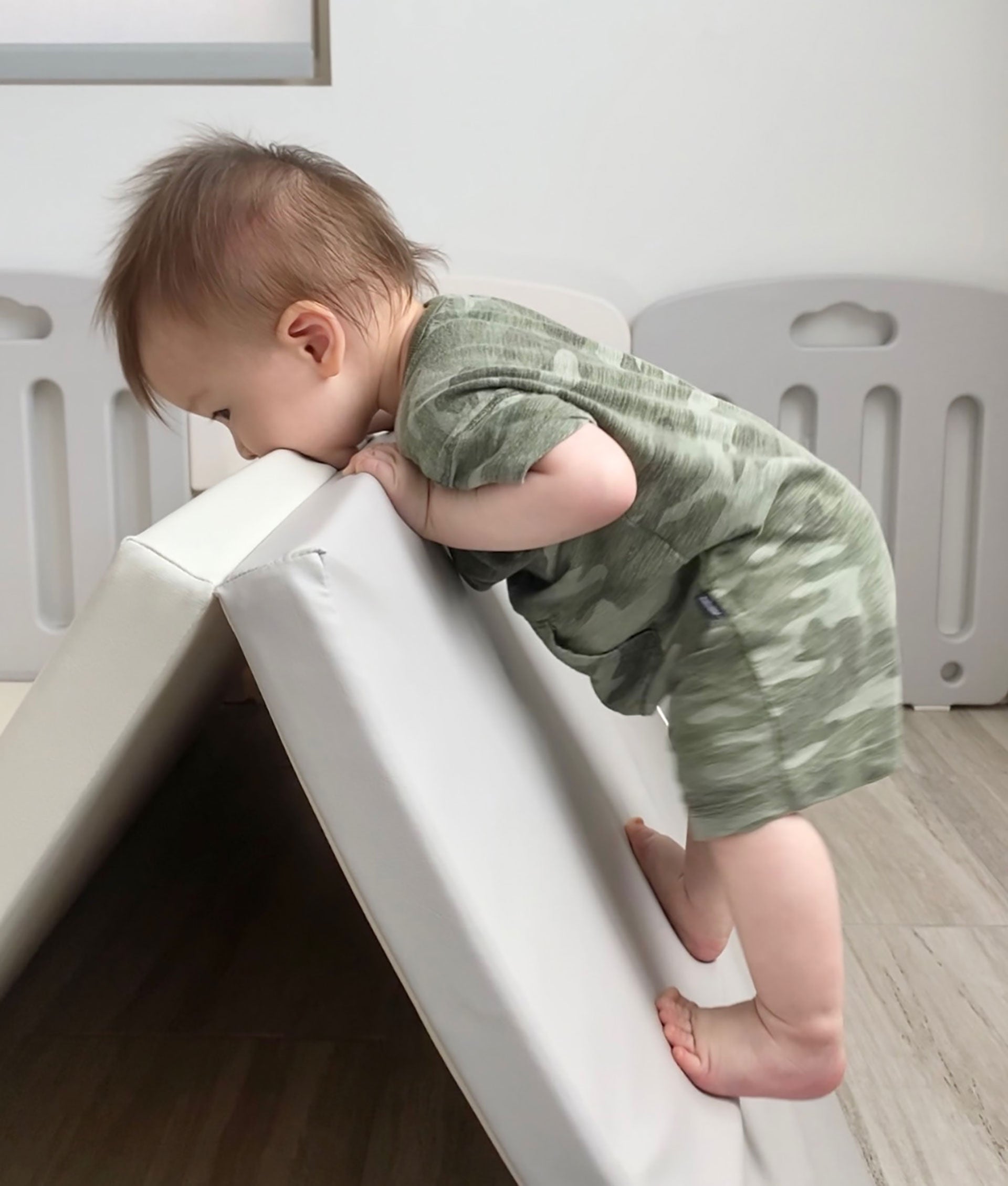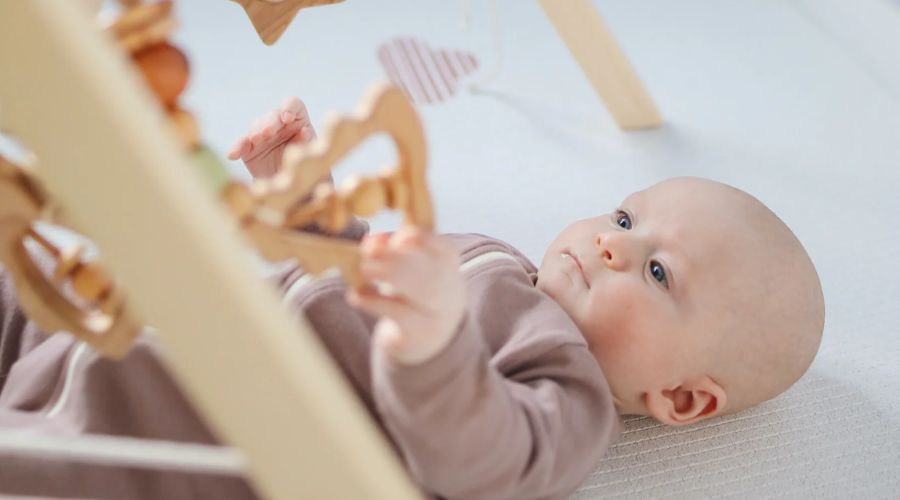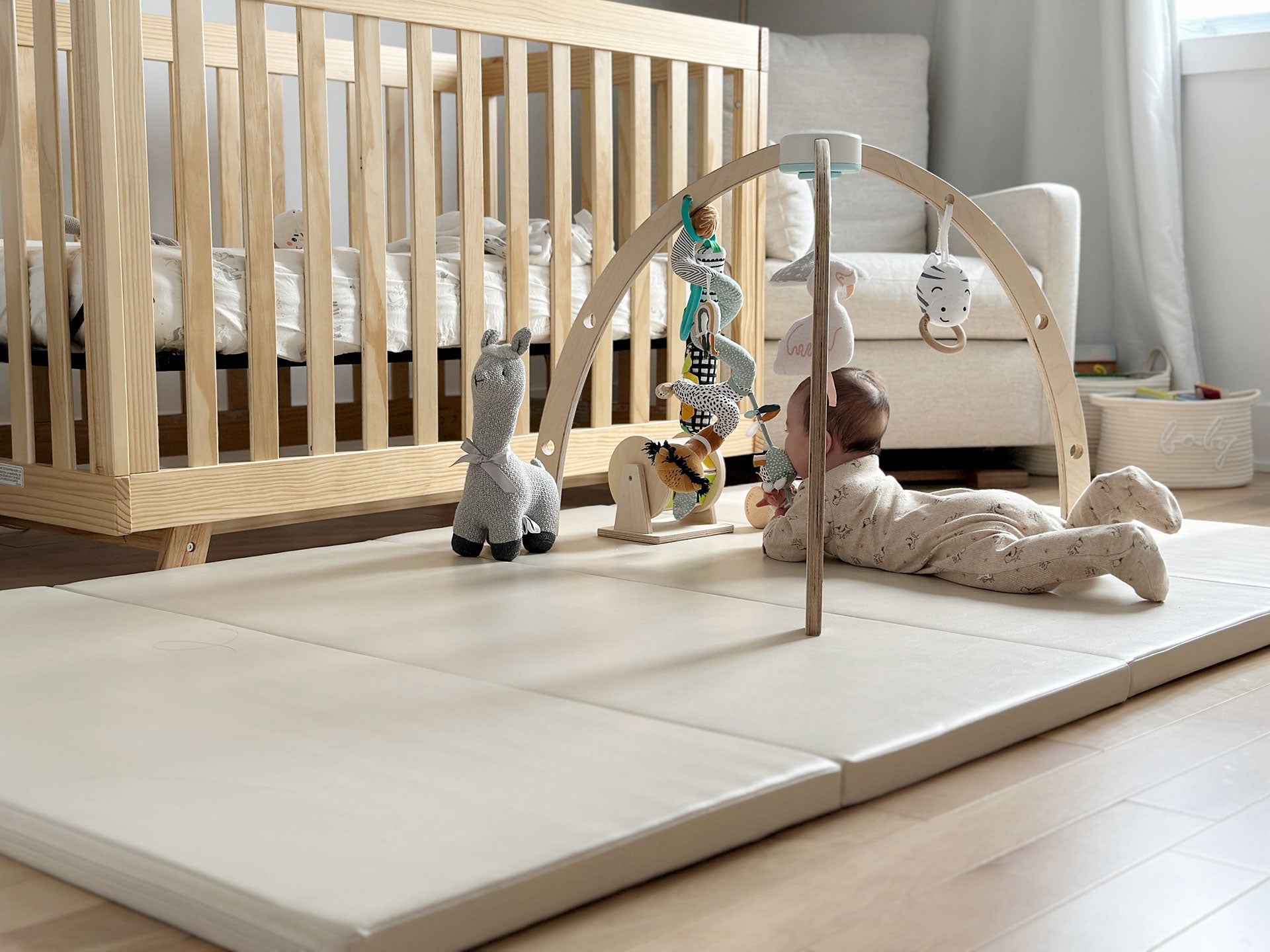
Your Guide to Baby Teething
As a parent, you’ll never forget the moment your child gets their first tooth. It’s one of the many important milestones they’ll reach in their first year, and it means adorable toothy smiles for months to come — but it also means a long and sometimes stressful teething process.
When babies start teething, it’s important to know what to expect. This guide will help you understand the signs and symptoms, timelines, and what helps teething babies feel their most comfortable.
How Early Can Babies Start Teething?
Knowing at what age do babies start teething can help you feel better prepared for your little one’s first tooth.
The average age for when babies start teething typically falls around the six to 12-month mark. However, some babies start their teething process earlier. You may notice them becoming fussier when they’re playing in their baby playpen around the three-month mark — with the first tooth starting to push through the gum line between four and seven months. These timelines can vary from infant to infant, so it’s important to monitor your child’s behaviour to determine when you need to start buying teething toys and other resources.
Teething Signs and Symptoms
The teething process can vary from one child to another, but there is an often universal experience parents will feel when it comes to taking care of their little ones and helping them navigate this milestone as comfortably as they can.
Understanding the signs and symptoms and what to give teething babies can help make the experience more pleasant for everyone.
What are 5 Common Signs of Babies When They are Teething?
While each teething experience is unique, there are five common signs to look out for to help determine when babies start teething and what can help soothe their discomfort.
Drooling
During the teething process, you’ll likely notice your child drooling, perhaps more than usual. It’s important to wipe their mouths often, as saliva build-up can lead to rashes around the mouth, cheek, and chin area. Applying a barrier cream can also help alleviate dry and chapped skin.
Biting and Gnawing
Have you noticed your little one trying to eat their non toxic baby play mat? The counter-pressure from gnawing or biting objects can help lessen the pressure on the gums. To help your child find relief, look for teething toys that can be placed in the fridge — colder temperatures can help soothe the ache in the gums.
Ear Pulling & Cheek Rubbing
If your child is pulling on their ears or rubbing their cheeks frequently, this could be a sign they’re starting to lose teeth. These symptoms are often caused by pain in the gums and exacerbated by erupting molars. Massaging the gums with a clean finger for a moment or two can help relieve pressure and aid in their discomfort. If these symptoms are accompanied by a high fever, contact your pediatrician to determine if it’s an ear infection.
Coughing
When excess saliva builds up around your child’s mouth, they may start coughing or gagging. Keeping the area clean is key — but if their cough is accompanied by cold or flu symptoms, contact your pediatrician.
Irritability
A fussy baby isn’t uncommon, but if you’re noticing your child is more irritable than usual, this may be a sign the teething process has begun. Keep those teething toys chilled and do your best to keep them calm and comfortable on their Wunderkids play mat or when they’re lying in your arms.
Do Babies Get Diarrhea When They’re Teething?
Your baby’s stool may be looser than usual, but this is likely due to gum pain and drinking excess fluids. Teething and diarrhea are not necessarily connected, and if your little one is experiencing frequent bowel movements, talk to your pediatrician to determine the cause.
What Helps Teething Babies?
Teething can be uncomfortable for your child, but that doesn’t mean they have to feel discomfort throughout the day. While there’s no one-size-fits-all solution, there are certain tools and tricks that can help them feel better so they can experience the best time to do tummy time without feeling fussy or in pain.
When they’re lying or sitting in their babyroom playpen extension, keep a chilled teething toy in their hands. These toys, especially when slightly chilled, can soothe their gums and help them feel more comfortable. With clean hands, massaging their gums is also a great way to relieve any pain in that area.

When Do Babies Stop Teething?
Teething typically evolves over five stages — with stage one beginning anywhere from zero to six months and stage five between 25 and 33 months when their large molars erupt. This stage, when your little one reaches toddler age, can be uncomfortable for them to navigate, and it may be harder than normal to soothe them. In some cases, giving them a hard vegetable to chew on can help — just be sure to keep a close eye to avoid choking hazards.
The Right Developmental Tools Can Help
The teething phase is one of the many important milestones your child will experience in their early development stages. Having the right nursery essentials in your home is the best way to ensure your little one is able to safely and comfortably explore and reach those milestones.
At Wunderkids, we understand how vital these stages are in your child’s development. That’s why we’re proud to be the exclusive supplier of Wunderkids by ALZiP mats and indoor baby gyms in Canada, shipping nationwide and across the U.S.
Each play mat and playpen is designed to help your little one make the most of tummy time and help them feel as comfortable as possible during their teething stage. Looking for the perfect baby shower gift, we’ve got you covered — help the friend or family member in your life navigate their child’s early development effortlessly.
Investing in quality-made, non-toxic products during this crucial time in their life is the best way to ensure they can comfortably build on their developmental skills and flourish into childhood and beyond.



